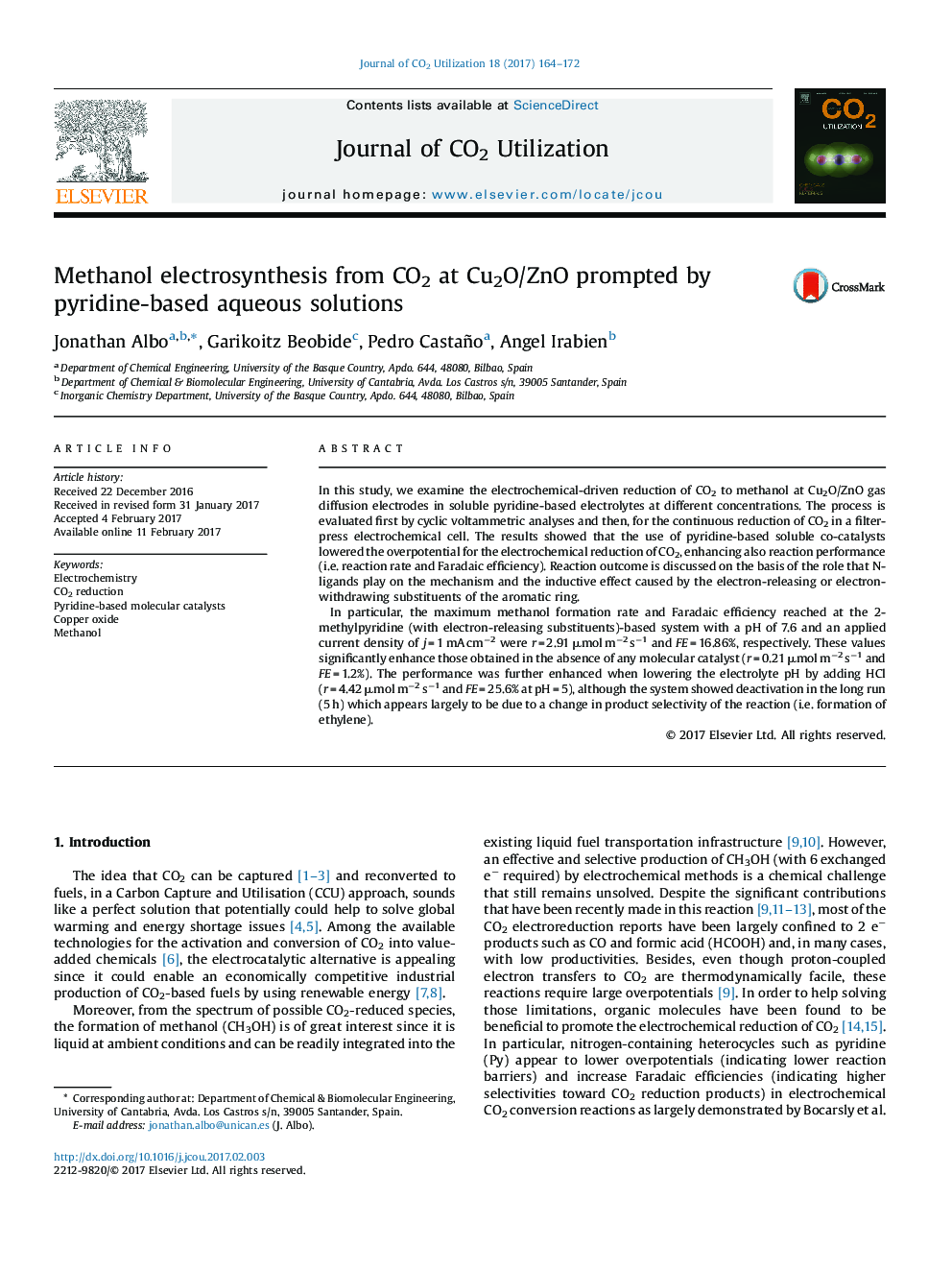| Article ID | Journal | Published Year | Pages | File Type |
|---|---|---|---|---|
| 6456205 | Journal of CO2 Utilization | 2017 | 9 Pages |
â¢The electrochemical-driven reduction of CO2 in Py-based electrolytes is analysed.â¢Reaction outcome is related to electron-releasing/withdrawing effect of N-ligands.â¢Process performance can be enhanced by reducing the pH of the solution.â¢The system showed deactivation at long reaction times (5 h).
In this study, we examine the electrochemical-driven reduction of CO2 to methanol at Cu2O/ZnO gas diffusion electrodes in soluble pyridine-based electrolytes at different concentrations. The process is evaluated first by cyclic voltammetric analyses and then, for the continuous reduction of CO2 in a filter-press electrochemical cell. The results showed that the use of pyridine-based soluble co-catalysts lowered the overpotential for the electrochemical reduction of CO2, enhancing also reaction performance (i.e. reaction rate and Faradaic efficiency). Reaction outcome is discussed on the basis of the role that N-ligands play on the mechanism and the inductive effect caused by the electron-releasing or electron-withdrawing substituents of the aromatic ring.In particular, the maximum methanol formation rate and Faradaic efficiency reached at the 2-methylpyridine (with electron-releasing substituents)-based system with a pH of 7.6 and an applied current density of j = 1 mA cmâ2 were r = 2.91 μmol mâ2 sâ1 and FE = 16.86%, respectively. These values significantly enhance those obtained in the absence of any molecular catalyst (r = 0.21 μmol mâ2 sâ1 and FE = 1.2%). The performance was further enhanced when lowering the electrolyte pH by adding HCl (r = 4.42 μmol mâ2 sâ1 and FE = 25.6% at pH = 5), although the system showed deactivation in the long run (5 h) which appears largely to be due to a change in product selectivity of the reaction (i.e. formation of ethylene).
Graphical abstractDownload high-res image (165KB)Download full-size image
